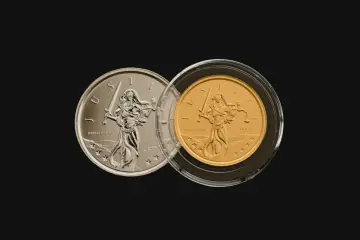Investing in precious metals can be a great way to make some money. However, there are some dangers to avoid. Before you get started, it is important to understand the risks associated with investing in gold, platinum, silver, and palladium.
Contents
Gold
Gold is an investment that has been around for many centuries. You can click here for more information about this element. The price of gold has been known to rise and fall depending on a few factors, including demand and supply, real interest rates, and public emotion.
Investing in precious metals can help diversify your portfolio and reduce risk. Some investors use physical precious metals as a hedge against inflation. Other investors will seek out returns in other asset classes such as stocks, bonds, or mutual funds.
A good way to invest in precious metals is through exchange-traded funds (ETFs). Exchange-traded funds offer exposure to both gold and silver. They come in several sizes and can be purchased from bullion dealers or major banks.
While ETFs may seem like a better option than purchasing gold directly, there are some drawbacks. For one, they come with an expense ratio. These costs cover administrative and security costs. This expense can increase the risk of a loss, which is not what you want to happen when you are trying to protect your capital.
Physical gold is the traditional way to invest in precious metals. Buying physical gold means that your investment is legally owned and is held in a vault. It also comes with certain risks, such as storage and shipping fees.
Although it is an investment with a lot of potential, it is not for everyone.
If you are interested in investing in physical gold, make sure you have a plan to store it. Some companies offer storage options to investors. Check out Gold Avenue reviews for more information. Be sure to have a plan in place before you begin investing.
The cost of buying and storing a physical gold bar can be significant. To avoid these costs, you can purchase a gold certificate. You can also take out a loan to fund the purchase. Before you decide to take out a loan, make sure you can afford to pay it back.
The most important thing to remember when investing in precious metals is to understand your risk profile and goals. Precious metals can be an excellent choice, but if you are in a shaky economic environment, your dollars might be better spent on other investments.

Palladium
Palladium is an investment in precious metals that can be an important part of your portfolio. It is a component of catalytic converters and a store of value. In addition to being used for these purposes, it is also an important part of many new technologies.
The automotive industry is a major contributor to palladium demand. Automotive production is expected to rise by about 11% by 2023. This will boost the price of palladium.
However, the market is volatile. Investors need to be careful when investing in palladium. Historically, the price of this metal has peaked twice in the past two years.
Some analysts forecast that the price of palladium will reach $2,500 in the next year. Other analysts predict that the price of this metal will fall to $1,564 by 2025.
Iridium
Iridium is a rare noble metal. It is one of the most corrosion-resistant metals. There are many uses for it. You can click the link: https://www.rsc.org/periodic-table/element/77/iridium for more information.
One of the most common uses is as a hardening agent in platinum alloys. Iridium is also used in sparkplugs for gasoline vehicle engines. These sparkplugs last 25 percent longer than those made of platinum.
Iridium is extremely hard. This property makes it useful for crucibles where molten metals are stored. Also, it is used as a catalyst in electrolysis, allowing water to be split into oxygen and hydrogen.
The price of iridium has been on the rise for the past few months. This is likely to continue. However, the market is largely illiquid, meaning major investors deal directly with producers rather than exchanges.
Other industries that use iridium include the semiconductor industry, telecommunications, electronics, and the automotive industry. Unlike other precious metals, iridium is not cast into shape.






